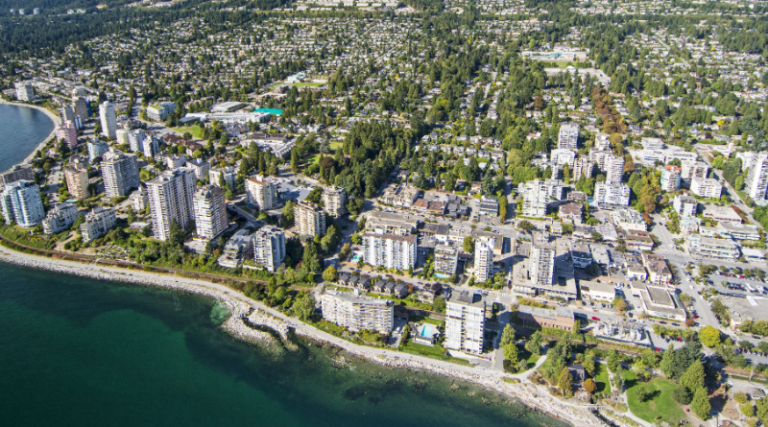When you are looking for a place to buy something, especially as an investment, there is a lot that goes into it. You need to figure out what location will be best for you, check the property values in the area, and make sure that there are no issues with the air quality or crime rate. If you have the time and money, it is worth doing all these things. However, if you don’t have those luxuries then this article can help by giving you tips on how to get started in your search so that you can find the right house!
Jasmohan Singh Bains is a real estate agent in Vancouver, British Columbia. He has worked in the Vancouver real estate market. He has seen the market crash of 2008, the rise of foreign investment in Vancouver real estate, and the recent slowdown of the market. I spoke with Jasmohan about his thoughts on Vancouver’s housing market and what he thinks is causing the current slowdown.
Jasmohan believes that there are a number of factors causing the current slowdown in Vancouver’s housing market. Firstly, he believes that affordability is a major factor. Vancouver is one of the most expensive cities in Canada to live in, and many people are simply priced out of the market. Secondly, Jasmohan believes that stricter mortgage rules introduced by the Canadian government last year have had an impact on the market. These rules make it more difficult for people to get mortgages, and as a result, fewer people are buying homes. Lastly, Jasmohan believes that foreign investment in Vancouver’s real estate market has slowed down in recent years. This is likely due to changes in government policy in China, which has led to fewer Chinese investors buying property in Vancouver.
History of the Vancouver Housing Market
In Vancouver, the average price of a detached home has more than doubled in the last 10 years. This is due to a number of factors, including low interest rates, population growth, and limited supply of land.
Jasmohan Singh Bains, a real estate agent with Re/Max Crest Realty, says that the Vancouver housing market has been through ups and downs over the years.
“If you look back at the history of Vancouver’s housing market, there have been times when prices have gone up very quickly, and then there have been periods of stabilization or even decline,” he says.
Bains notes that the current market conditions are unique, with detached homes in particular seeing unprecedented price increases.
“What we’re seeing now is something that we haven’t seen before – prices have gone up so quickly and they don’t seem to be slowing down,” he says. “It’s hard to predict what will happen in the future, but I think we could see prices continue to go up for some time.”
What Makes Vancouver Different from Other Cities?
In recent years, Vancouver’s housing market has been one of the hottest in North America. Prices have skyrocketed, and there is no end in sight. So what makes Vancouver different from other cities?
For one, Vancouver is a city of immigrants. Over half of the population is foreign-born, and many of them are looking to buy property. This demand drives up prices.
Vancouver is also a desirable place to live. It has a mild climate, beautiful scenery, and a vibrant culture. These factors make it a magnet for wealthy buyers from all over the world.
As a result of all these factors, Vancouver has become one of the most expensive places to buy property in North America. If you’re thinking of buying a home in Vancouver, be prepared to pay a premium.
Policies and Regulations to Protect Affordable Housing in Vancouver
Vancouver is one of the most expensive cities to live in, and its housing market is becoming increasingly out of reach for many residents. In an effort to protect affordable housing, the city has implemented a number of policies and regulations.
One of the most impactful policies has been the introduction of the Empty Homes Tax, which imposes a tax on properties that are left vacant for more than six months out of the year. The tax is designed to incentivize property owners to rent out their units, making more homes available for those who need them.
The city has also implemented a number of zoning regulations that restrict the construction of luxury condos and other high-end developments. These regulations have helped to preserve Vancouver’s stock of affordable housing, ensuring that there are homes available for all residents, regardless of their income level.
Finally, Vancouver has established a Housing Reserve Fund, which provides financial assistance to low-income households and helps to fund the construction of new affordable housing units. These initiatives have made Vancouver a leader in the fight to protect affordable housing, and ensure that all residents have access to a place they can call home.
Rental Supply in Vancouver
Jasmohan Singh Bains, a Vancouver-based real estate agent, spoke to me about the rental supply in Vancouver. He said that there is currently a lot of rental supply in Vancouver, which is good news for renters. There are many new apartment buildings being built, and many old ones are being converted into rentals. This is helping to keep rents down and giving renters more options.
Bains said that the current situation is a good time to be a renter in Vancouver. He expects rents to stay relatively stable in the short-term, and thinks that there may even be some decreases in rent as more units come onto the market. In the long-term, he thinks that Vancouver’s housing market will continue to grow, but at a slower pace than we’ve seen in recent years. This will keep rents from increasing too much, and will give renters some security.
The Future of the Vancouver Housing Market
It’s no secret that Vancouver’s housing market is one of the most expensive in North America. And it’s only getting more expensive.
Jasmohan Singh Bains, a real estate agent with Sutton Group west coast Realty, says that the average price for a detached home in Vancouver is now over $2 million. That’s an increase of nearly 25% from just last year.
So what’s driving these prices? Bains says that there are a number of factors, including foreign investment, low interest rates, and a limited supply of homes.
Bains believes that the current situation is not sustainable and that prices will eventually come down. But in the meantime, he advises would-be buyers to be patient and to be prepared to pay more than they may have originally anticipated.
Conclusion
Jasmohan Singh Bains was very informative when it came to Vancouver’s housing market. He explained that the market is currently cooling off, but that prices are still high. He also said that there is a lot of speculation going on, which is driving prices up. However, he believes that the market will eventually stabilize and become more affordable for buyers. Overall, I found Jasmohan to be very knowledgeable about the Vancouver housing market and he provided some great insights.


